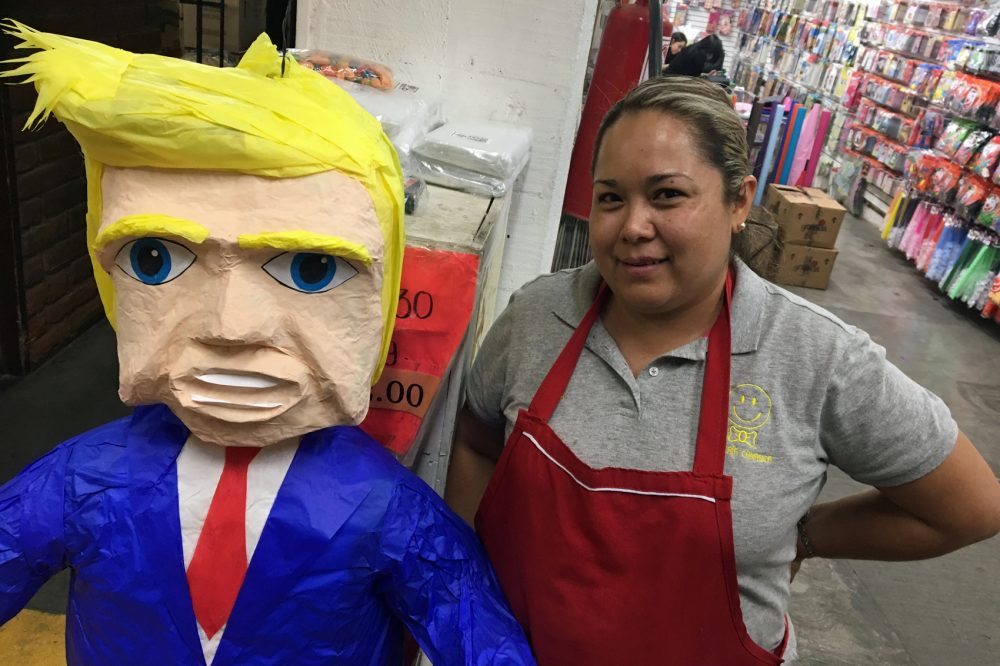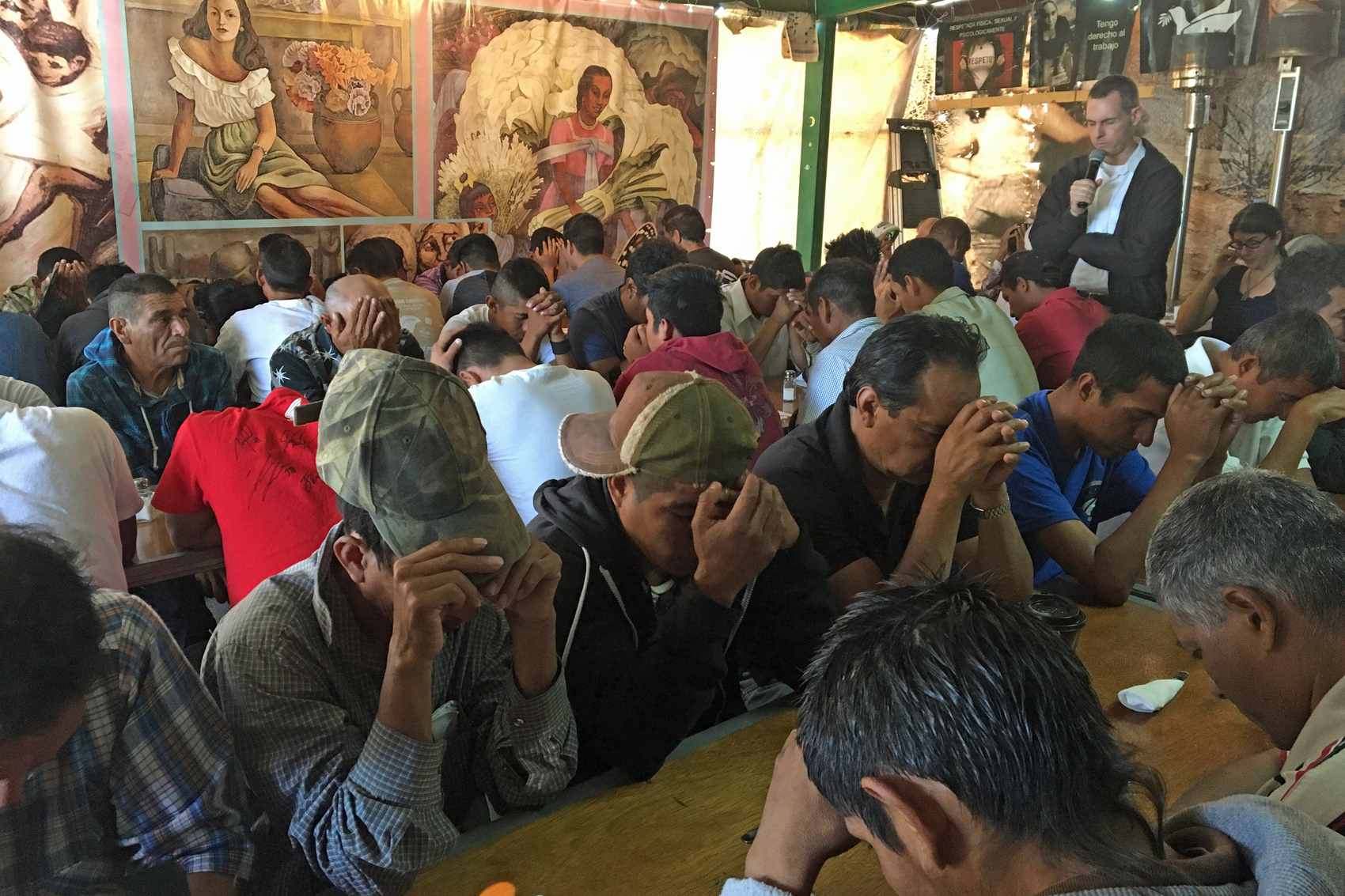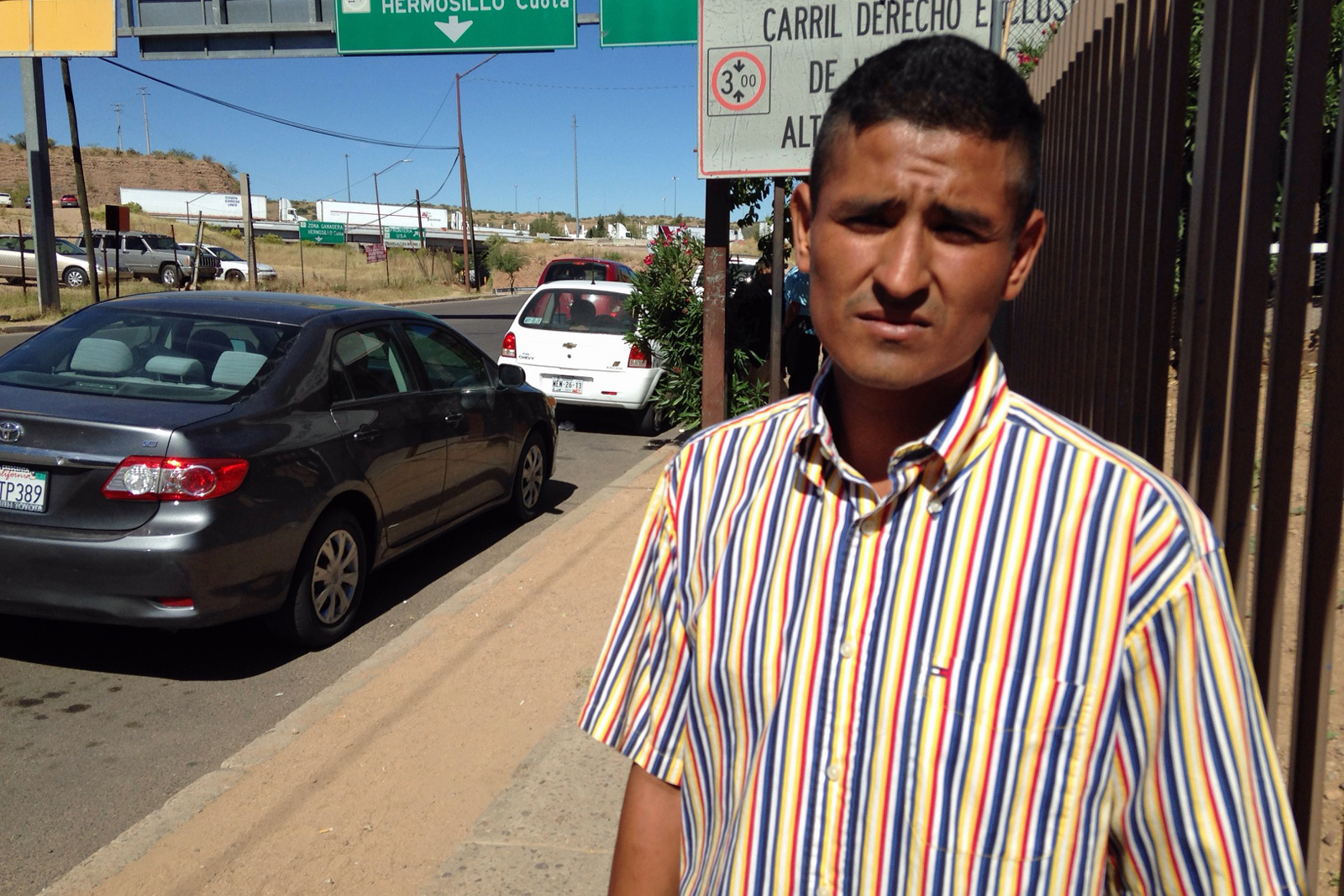Advertisement
Mexicans Can't Vote In The U.S., But They're Watching Its Election Closely
Resume
With less than two weeks to go before Election Day, Americans are eager to know who their next president will be.
With any luck, it will be Donald Trump, according to an Arizona rancher we spoke to last week who supports the candidate's strict stance on immigration and border security.
It’s a different story south of the border, where Mexicans are also intently watching the election — even though they can’t vote Nov. 8.
Migrants dining at a soup kitchen run by Jesuit priests in the border town of Nogales, Sonora, have been following the race on social media and Mexican TV. Many of them eating breakfast on a recent morning had just been deported from the United States or were making plans to cross illegally into the U.S. for the first time.
It’s probably no surprise: They were not fans of Trump's plan to build a wall across of the full length of the border and create a deportation force.
"That’s probably what he wants to accomplish, but Mexicans are always going to find a way to cross the border no matter the barriers he puts up," said Janet Savala, who left her home in central Mexico to find better work in the United States.

Others said the proposed wall would keep people out — like the Great Wall of China — but Trump would never get the money to pay for it. And Lamberto Rosas said he started watching the debates between Trump and Hillary Clinton at home with his wife as soon as he decided to leave his family in Sinaloa.
If he got lucky and made it through the desert, he wanted to know what to expect on the other side.
"He was paying attention to Trump’s platform of deporting everybody," a translator explained. "Because it concerns him. If he makes it and he gets deported, everything will be in vain."
Of course, that's exactly why many American voters want Trump to win.
Across town, in a crowded city hall, Nogales Mayor Temo Galindo explained what a Trump presidency would mean for his city of 200,000.
“From the moment he proposes to deport immigrants, the moment he proposes that he’ll seal the border and that he’s going to ask for a revision of the free trade agreement, he’s talking about generating uncertainty,” Galindo said, referring to Trump’s threat to renegotiate or pull out of NAFTA.

Galindo has seen what political uncertainty can do to the cross-border economy. In 2010, when Arizona’s legislature passed the strict immigration law known as SB 1070, the region's commerce slowed.
"It’s the same thing all over again," said Galindo, who pointed out that every year, billions of dollars of Mexican-grown lettuce, cucumbers, avocados and beef cross into the United States from Nogales.
And Trump's deportation plan would swamp the city with social problems, he said. Nogales has shelters for up to 400 migrants.
"They come sick. They come with no papers. They come with no money. And the city is responsible for their well-being," Galindo said, adding that there’s no way to care for more if Trump makes good on his promise.
"Nogales is not ready for that,” he said. "It would cause chaos."
This article was originally published on October 26, 2016.
This segment aired on October 26, 2016.
